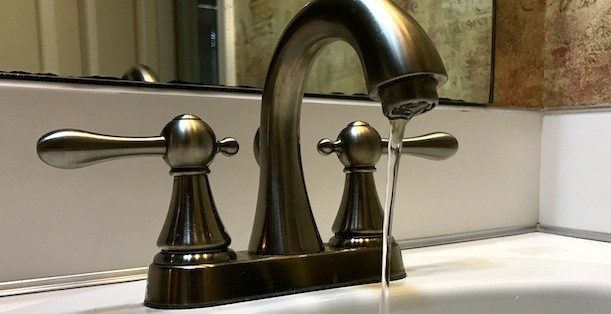The City of Fort Smith, now considering a big investment in new water meters, spent more than $5 million between 2017 and 2019 to replace meters. That process was stalled by an historic flood, water leaks, and faulty meters, according to the city.
The Fort Smith Board of Directors on June 24 agreed to allow city staff to work with Framingham, Mass.-based Ameresco to develop options to modernize the city’s water meter system, which could help the city reduce an estimated non revenue water loss of around 35%. Ameresco executive Chad Nobles said the cost to replace meters could range between $500 and $1,200 a meter, which would be a total cost range in Fort Smith of $20 million and $48 million. Fort Smith had 39,372 water meters as of late June.
If the city moves forward with a meter-replacement plan, it will be the second such plan in less than 10 years.
The city announced in October 2017 it would begin replacing outdated meters at an overall project cost of $7 million. At the time, the city said it had 36,589 meters. From these, roughly 16,800 had exceeded their normal life expectancy (45.91%) with 9,500 of those (25.96% of the total) at more than 20 years old. The city anticipated rates for the 9,500 could see an average increase of 21.3% on their water bills. The additional 7,300 that have outlived the recommended 10 years (19.95% of the city’s total metered population) would likely see smaller increases.
According to information from the city, meter replacement began in 2017 and continued into 2019 when historic flooding of the Arkansas River forced the city’s utilities department to focus on flood recovery. Prior to the pause, the city spent $5.225 million on Zenner meters with electronic ERTs – encoder receiver transmitters that typically allow for more accurate readings and don’t require more expensive and time-consuming manual checks. The city said around 65% of meters were replaced before the process was halted.
“The project was paused following the 2019 flood, and prior to resuming the replacement of meters, staff began focusing on water leaks at the end of 2019,” the city noted in response to questions from Talk Business & Politics. “Issues began to surface with the performance of the Zenner AMR meters, and the replacement process did not resume.”
Also, the city said it “did not achieve the full anticipated recovery of lost water revenue from the meter replacement program, mainly because not all meters were replaced.”
Nobles told Talk Business & Politics on June 24 that the city’s meters are “real bad,” and are “really behind” in terms of technology. In response to Nobles’ assessment about many meters that are less than 10 years old, the city said some meters are up to 30-years old, and the meters installed between 2017 and 2019 use batteries that have a 10-year lifespan.
“Many of the City’s water meters are in poor condition because a significant number are well beyond their expected service life,” according to the city. “For example, some meters still in use are 20–30 years old, and even the newer Zenner meters installed were only designed to last about 10 years. While many of the new meters were installed during 2017 through 2019, some were purchased as early as 2016 and 2017. The internal batteries that power the AMR and the mechanical operation portion of the meter also have a lifespan of approximately 10 years, so many are nearing the end of their expected life.”
The city said Ameresco is aware of the effort that began in 2017 to replace water meters.
The Fort Smith Board has not been presented a new plan to replace meters, and has not approved a budget to replace meters.
Related
(Except for the headline, this story has not been edited by PostX News and is published from a syndicated feed.)

